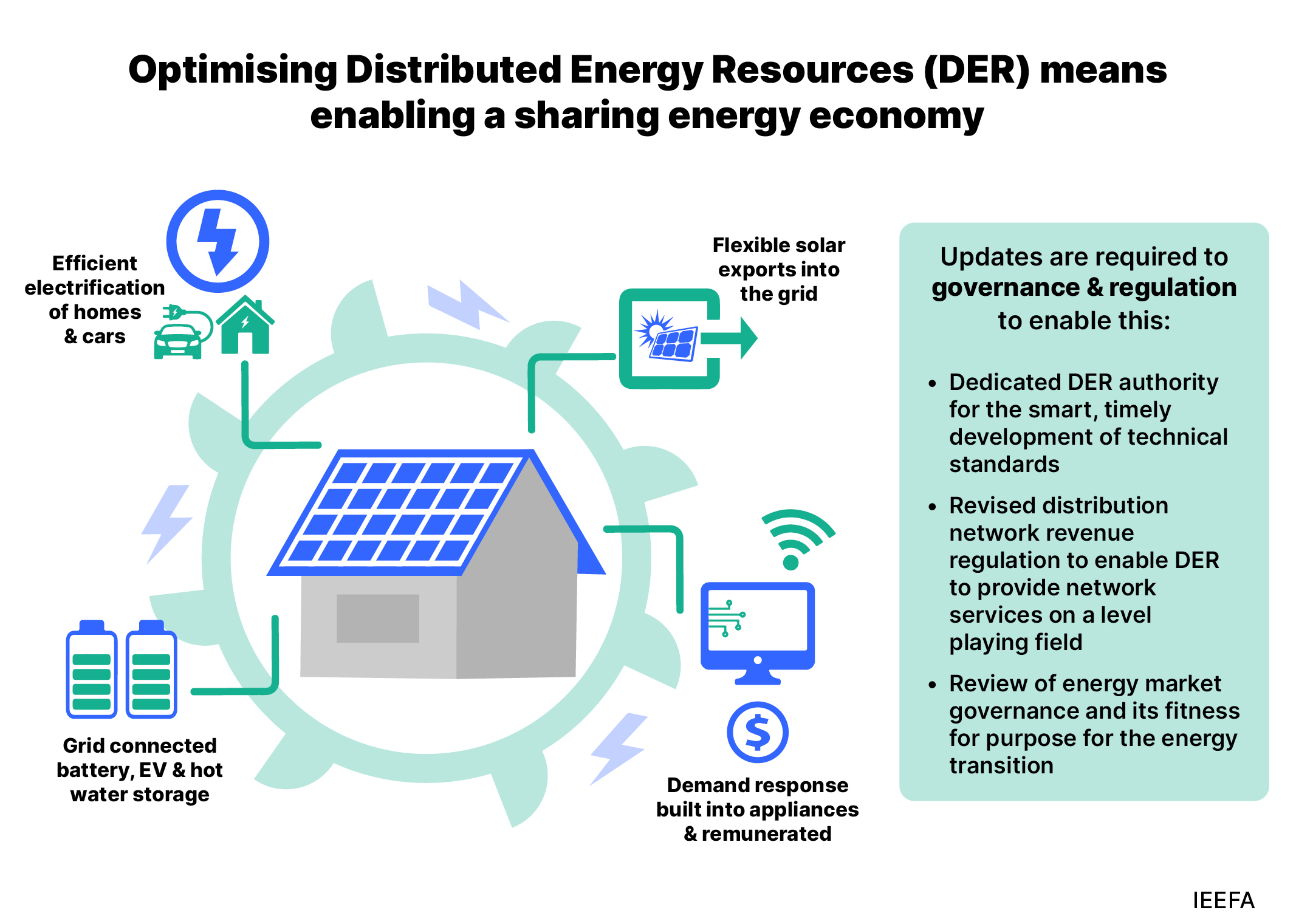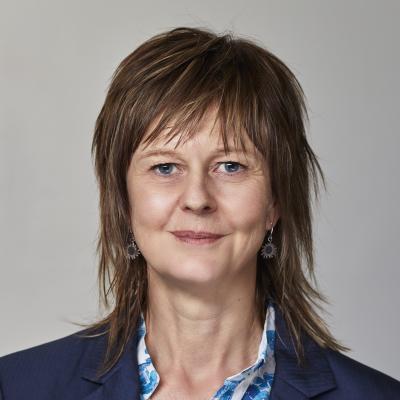How DER can power a sharing economy for energy

Energy Ministers can support cheaper, faster decarbonisation through distributed energy resources
Key Takeaways:
Distributed Energy Resources (DER) can unlock faster decarbonisation and lower energy bills by leveraging household and business investment, increasing the chances of Australia reaching 82% renewables by 2030.
A DER authority should be established, responsible for technical standards, to optimise the value of DER, including electric vehicles.
To make the most of renewable power, accelerated action is needed to scale both flexible demand and distributed storage.
A review of energy market governance is needed to support a sharing economy for energy, while a review of distribution network revenue regulation is necessary to ensure distribution networks are remunerated efficiently in a DER-rich world, and that DER provide network services on a level playing field.
13 October 2023 - (IEEFA Australia): State and federal energy ministers have an opportunity to rapidly accelerate Australia’s decarbonisation by implementing a package of six measures to promote the adoption and integration of Distributed Energy Resources (DER).
A new report from IEEFA highlights that consumers’ purchases of DER, such as rooftop solar, battery storage and demand-responsive appliances, can unlock faster decarbonisation and lower energy bills if energy ministers take supportive action at their meeting in Perth on 24 November.
Speeding up the adoption and integration of DER will leverage household and business investment, increasing the chances of Australia reaching 82% renewables by 2030. This is especially urgent given the delays in large-scale wind and solar investment and in the construction of new transmission infrastructure.
“Prioritising support for DER has the potential to smooth out some of the bumps in the energy transition road,” says Dr Gabrielle Kuiper, the report’s author and IEEFA guest contributor. “We’ve seen in recent weeks the whole of South Australia was powered by household solar for a few minutes. This is a phenomenal milestone, and we can do even more to make the most of our abundant sunshine.”
While Australia leads the world in terms of residential uptake of rooftop solar power, much greater benefits could be extracted through a more coherent approach encompassing all forms of DER.
“The true champion of the energy transition in Australia so far is rooftop solar, and the future champions are smart electrified hot water systems, smart demand-responsive appliances, behind-the-meter (BTM) storage and electrified, efficient businesses and industry,” says Dr Kuiper. “These areas of policy and regulation have not had the attention they deserve. What the IEEFA report does is set out how more solar, more batteries and more flexible demand in the grid can put downward pressure on wholesale and network costs, but it needs action by energy ministers in six areas to unlock those benefits.”
In the report Dr Kuiper offers six vital recommendations for energy ministers:
1. Ensure appropriate technical standards are in place
IEEFA recommends energy ministers create a body for the smart, timely development of technical standards. Smart technical standards will ensure that DER performs consistently, has the necessary features to support consumer needs, and enables DER to participate in markets (such as communicating with each other), as well as delivering compliance with the needs of distribution networks.
2. Remove static constraints on existing solar
Distribution network businesses can maximise solar exports and lower costs for consumers by rolling out flexible exports (which is already being done in South Australia) and improving voltage management. The Victorian Government conservatively estimates that improved voltage management will lower costs for consumers by $30 million per year ongoing, without accounting for the benefits of increased solar exports or improved appliance lifetimes.
3. Unlock flexible demand
Households are limited in the revenue they can earn from flexing their demand because the wholesale demand response mechanism (WDR mechanism) is limited to large commercial and industrial customers. This needs to be changed, alongside improvements to the operation of the WDR mechanism, requirements for demand response capability for major household appliances, and support for the smart, efficient electrification of hot water systems.
4. Fast-track distributed storage
To make the best use of rooftop solar, the government should prioritise and provide financial support for distributed battery systems and allow aggregated BTM storage (and potentially demand response) to participate in the Capacity Investment Scheme.
5. Create a level-playing field in network services
A review of network revenue regulation is needed to make sure that in a DER-rich future, networks are used efficiently and that network costs can be reduced for consumers. This regulation also needs to enable DER to be able to provide network services on a level playing field with expenditure on network assets.
6. Ensure fit-for-purpose governance
A review should examine whether the current governance arrangements support rapid decarbonisation, the integration of small- and large-scale renewables, and the achievement of the 82% renewables target by 2030.
“This is a significant package of reforms,” Dr Kuiper added. “None of it is easy, but all of it is necessary to unlock the benefits of the $25 billion worth of DER that consumers have already purchased and the $250 billion over the next 20 years if five million households invest an average $50,000 in solar, electric vehicles and smart electric appliances.
“At present DER are already benefiting the people who purchased them and the broader grid, but those benefits could be so much greater if we get the technical, regulatory and market integration right.”
Read the report: Growing the sharing energy economy – How energy ministers can support cheaper, faster decarbonisation through Distributed Energy Resources
Media contact: Amy Leiper, ph 0414 643 446, [email protected]
About IEEFA: The Institute for Energy Economics and Financial Analysis (IEEFA) examines issues related to energy markets, trends, and policies. The Institute’s mission is to accelerate the transition to a diverse, sustainable and profitable energy economy. (ieefa.org)













